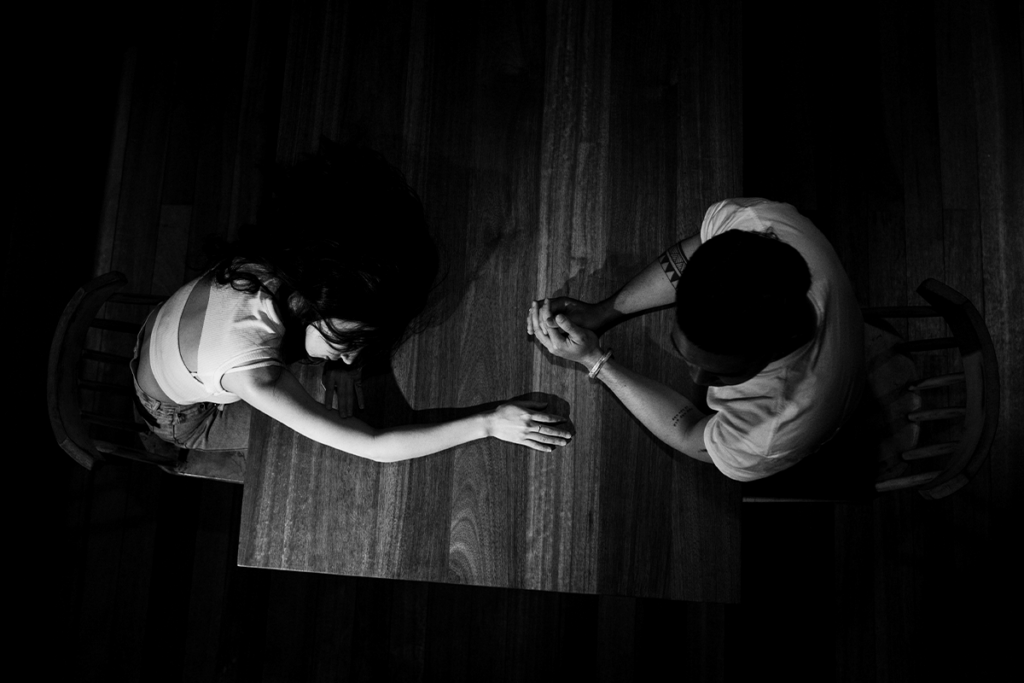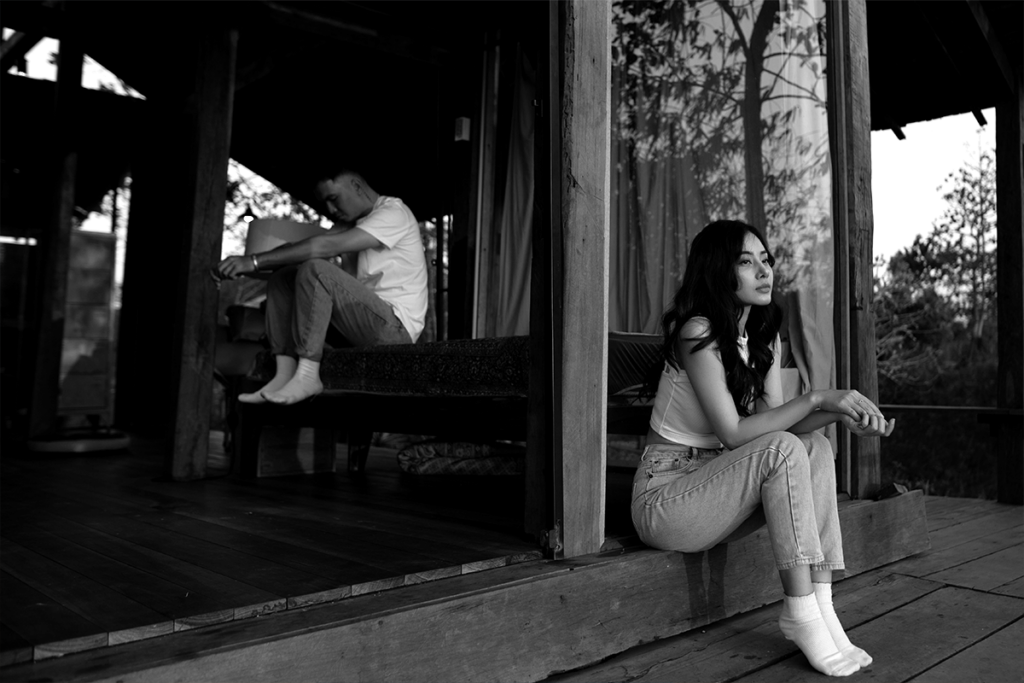So, you’re feeling resentful towards your partner — or feeling resented by them. You want to fix this growing relationship resentment, but you don’t know how.
Maybe it used to feel easy to brush over or forgive the little things that peeve you about each other — the forgotten dishes, an ill-timed joke.
Now, they’re hotter to the touch.
Of course it’s harder to forgive and forget — now it’s personal!
You think, “How can this person possibly love me if they keep hurting me this way?”
Not supporting you. Not accepting you.
It hurts when you don’t feel loved in the ways you need to feel loved.
To you, loving people “the right way” feels like second nature. A no-brainer.
“So, what’s my partner’s problem? Why can’t they get it?”
In most cases, the reason that your partner doesn’t “get it” — and keeps not getting it — isn’t because they are stubborn, trying to hurt you, or because they’re inherently dull.
It’s because you and your partner have fundamentally different experiences, histories, and understandings around what it means to love and be loved.
There’s an empathy gap.
Your partner, despite perhaps trying to understand your experience time and again, still can’t relate — they don’t feel it in their bones the way that you do.
And therein lies the path forward for me as a couples therapist…
How to fix resentment in a relationship, in 2 steps:
To support couples with healing from resentment, I need to do two things:
The first step is to help couples see how their wounding in relationship — and thereby their understanding of what it means to be loved — is different.
The second step is to help each partner know what it’s like to be in the other’s world. Like, really know it. Not just in their minds, but in their bodies.
To discover how to fix resentment in your relationship, let’s break these steps down a little bit more.

1. See and acknowledge that you come from different worlds.
Part of the problem with relationship resentment is that we assume our partner does “get it”.
They get how deeply hurtful certain actions or words are to us.
They get the basic things that would make us feel loved.
They just don’t care.
Making this assumption is totally understandable. For us, this stuff is akin to knowing your ABC’s. Being hurt and missed in these ways are tales as old as time.
And that’s because they literally are.
For better or for worse, most of our core wounding and beliefs about love are imprinted in our earliest years of life. The science of attachment and emergent findings on the effects of developmental relational trauma teach us this. Our bodies and nervous systems have been wiring themselves around these beliefs since we were literally babies.
Since we’ve moved through the world this way since we can remember, we understandably assume that this is just the way the world is, and that it must be this way for everybody.
Like fish that don’t know they’re in water, our sense of self is indistinguishable from the relational wounds of our past. We’ve lived with these wounds and beliefs for so long that we forget what they are: wounds and beliefs, specific to ourselves.
When we wake up to the reality that not everyone moves through the world in the way that we do, it can feel both tender and liberating.
You mean not everybody feels on some level like they are bad?
You mean not everybody on some level feels like they are too much?
Really?
The opportunity here is to discover that you are not just your pain story. That your pain is, in fact, just a very long and very old story.
It’s not who you really are.
And so the self that was once fused with your wounded parts begins to defuse a little.
It’s when we create this space, however small, between our wounded part and the rest of us that healing can occur.
When we’re able to see how we’ve been hurting more clearly, we can turn towards ourselves with more compassion, wrapping our little ones up in our own arms with tenderness and care.
The moment of realization that not everyone carries the same pain story as us is essential for understanding why your partner doesn’t “get it.”
We no longer assume that they do — or that they easily will.
Helping them get it becomes more of a mutual responsibility and an aspirational pathway forward in your relationship, rather than an expectation.
And it is those expectations which feed your relationship resentment.

2: Try to (really) understand your partner’s world
Once you are able to see and acknowledge that your pain story is not baked into everyone’s reality, you might be open to trying on the idea that perhaps you don’t understand your partner’s reality as much as you think you do.
You’ve heard them share a thousand times about why it’s so painful for them when you show up late, or ask where something is, or shut down their ideas.
You nod your head with understanding for the thousand-and-one-th time.
“I get it, I get it, ok,” you say with some defensiveness and resignation.
“I’ve heard you say this already”.
But the truth is your partner is upset because they aren’t feeling “got” by you in that moment, and that’s probably because…
You still don’t really get it!
“Getting it” requires going beyond our cognitive understanding of our partner’s experience, and daring to let ourselves really taste their reality, taste their pain.
Ask yourself...
- Do you know what sensations happen for them when they feel this way?
A heavy, collapsed chest? A sourness in their mouth? - Do you know what negative stories they start to tell about themselves and the world?
That they’re unlovable? That the world is a lonely place? - Do you know what images or memories might arise for them?
A muddled, but disapproving face? A withering tree?
Figs, Empathi’s founder, likes to joke in the counselor trainings (as he often does) that to actually understand our partner’s experience we need to take a metaphorical acid tab of your partner’s pain and have a bad trip.
Having tasted that pain so fully and completely for yourself, you return to sobriety with the feeling, “OOHHHHHHHHH. So THAT’S the s**t you’ve been talking about?!? That f***ing sucks!!!”
It’s a dramatic metaphor (Figs is a dramatic human).
But it really does get to the heart of what I’m trying to explain: It’s important for us to have a real, embodied experience of what it’s like to live and breathe as our partners in order for them to genuinely feel understood.
And vice versa!

When it comes to resentment, it is this feeling of mutual understanding — even more than changed behavior — that allows for things to shift.
When we arrive at an understanding that our partner isn’t trying to hurt us — and that understanding our pain, or theirs, may not be as easy as we think — we usually experience more compassion for the tragedy of the whole situation…
Two people trying to understand each other, trying to love each other, who just don’t know how to sometimes.
How sad and how beautiful.
Having this conceptual understanding is a good place to start as far as tending to resentment and disconnection in your partnership.
While it’s great to try and bridge these empathy gaps with your partner on your own, couples counseling is still the fastest and safest way to arrive at that deeper level of understanding that allows you to move past resentment and back into connection.
That’s really how to fix resentment in a relationship.
And it is witnessing couples experience these kinds of breakthroughs everyday at Empathi that lights me up in this work.



